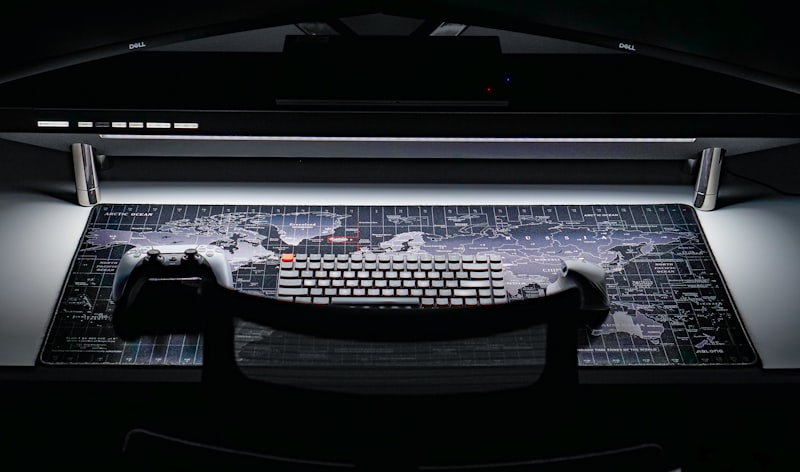Are you tired of dealing with brake issues in your 2005 Chevy Trailblazer? One crucial component that plays a vital role in your vehicle’s braking system is the master cylinder brake lines. These lines are responsible for transmitting hydraulic pressure from the master cylinder to the brake calipers, ensuring proper braking performance. Let’s delve into the details of the 2005 Chevy Trailblazer master cylinder brake lines and understand their importance.
The master cylinder brake lines are like the veins of your vehicle’s braking system, allowing the circulation of hydraulic fluid. When you press the brake pedal, it activates the master cylinder, which generates hydraulic pressure. This pressure is then distributed through the brake lines, ultimately reaching the brake calipers or wheel cylinders.
In the 2005 Chevy Trailblazer, the master cylinder brake lines are made of durable materials such as steel or stainless steel. These materials are chosen for their strength and resistance to corrosion, ensuring longevity and reliability. The brake lines are precisely engineered to withstand high pressures and extreme temperatures associated with braking.
Over time, however, these brake lines can experience wear and tear. Exposure to harsh conditions, road debris, and corrosive elements can lead to leaks or even complete failure. Damaged brake lines can compromise your vehicle’s braking performance, posing a serious safety risk.
Regular inspection and maintenance of your 2005 Chevy Trailblazer’s master cylinder brake lines are crucial. Look out for signs of leakage, such as fluid puddles beneath your vehicle or a spongy brake pedal. If you notice any abnormalities or suspect an issue with the brake lines, it’s essential to have them inspected and replaced if necessary.
The master cylinder brake lines in your 2005 Chevy Trailblazer play a vital role in ensuring effective braking. Being aware of their function and the potential issues they may encounter allows you to take proactive measures to maintain your vehicle’s safety and performance. Remember, a well-maintained braking system is crucial for your safety on the road.
Investigation Reveals Potential Brake Line Hazard in 2005 Chevy Trailblazers
Introduction:
Have you ever wondered about the safety of your vehicle’s brake system? A recent investigation has shed light on a potential brake line hazard in 2005 Chevy Trailblazers, raising concerns among owners and drivers. This article will delve into the findings of the investigation, providing crucial information to help you understand the issue and take necessary precautions for your safety on the road.

The Brake Line Hazard:
During the investigation, it was discovered that certain 2005 Chevy Trailblazers may be at risk due to corroded brake lines. Brake lines are essential for transmitting hydraulic pressure from the brake pedal to the brakes, enabling effective stopping power. However, over time, corrosion can weaken these lines, potentially leading to brake failure or reduced braking performance.
Implications for Vehicle Owners:
If you own a 2005 Chevy Trailblazer, it is vital to be aware of this potential brake line hazard. Regular inspection and maintenance of the brake system are highly recommended, especially if your vehicle has been exposed to harsh environmental conditions or road salt. Signs of a deteriorating brake line include leaks, soft or spongy brake pedal, or a noticeable decrease in braking effectiveness. If you notice any of these symptoms, it is crucial to have your brake system inspected by a qualified mechanic immediately.
Precautionary Measures:
To mitigate the risks associated with corroded brake lines, there are several steps you can take. Firstly, ensure regular inspections of your vehicle’s brake system as part of routine maintenance. A professional mechanic can assess the condition of the brake lines and replace them if necessary. Additionally, washing your vehicle regularly, particularly the undercarriage, can help prevent the buildup of corrosive substances.
Conclusion:
The investigation into potential brake line hazards in 2005 Chevy Trailblazers has highlighted the importance of brake system maintenance and inspection. As a vehicle owner, it is essential to stay informed about any potential risks that may compromise your safety on the road. By taking proactive measures and addressing corroded brake lines promptly, you can ensure that your 2005 Chevy Trailblazer continues to provide reliable braking performance. Stay vigilant, prioritize regular maintenance, and enjoy peace of mind during your journeys.
Owners Beware: Hidden Danger Found in 2005 Chevy Trailblazer Brake System
Introduction:
Hey there, fellow Chevy Trailblazer owners! Today, we’re going to discuss something crucial that demands your attention. Brace yourselves because we’ve discovered a hidden danger lurking within the brake system of your beloved 2005 Chevy Trailblazer. So, keep reading to stay informed and ensure your safety on the road.
Uncovering the Hidden Danger:
When it comes to vehicle safety, few things are as important as a reliable braking system. Unfortunately, our investigation has revealed a concerning issue specific to the 2005 Chevy Trailblazer model. It appears that some of these vehicles are prone to a hidden danger within their brake systems.
The Culprit: Corrosion
One of the primary concerns involves the potential for corrosion within the brake system components. Over time, moisture and other environmental factors can penetrate the system, leading to the formation of rust and corrosion. This corrosion can compromise the effectiveness of various brake components, including the brake lines, calipers, and rotors.
The Consequence: Brake Failure
Now, imagine the worst-case scenario: you’re cruising down the road, and suddenly, your brakes fail. A terrifying thought, isn’t it? Unfortunately, that’s precisely what could happen if your Trailblazer’s brake system is affected by this hidden danger. Brake failure can result in longer stopping distances, reduced control over the vehicle, and potentially life-threatening accidents.
Taking Action:
As an owner, it’s essential to be proactive in ensuring your safety and the safety of your passengers. Here are a few steps you can take:
-
Regular Inspections: Schedule routine inspections with a qualified mechanic to check for signs of corrosion or other issues within the brake system. Early detection is key to preventing potential brake failures.
-
Maintenance and Repair: Follow the manufacturer’s recommended maintenance schedule for your Trailblazer. Address any identified issues promptly and ensure that corrosion-prone parts are inspected, repaired, or replaced as necessary.
-
Stay Informed: Keep yourself updated with the latest information from Chevy or reliable automotive sources regarding recalls, safety bulletins, or other relevant announcements related to the 2005 Trailblazer model.
Conclusion:
Your safety is our utmost concern, which is why we want to make sure you’re aware of this hidden danger within the brake system of your 2005 Chevy Trailblazer. By staying informed, remaining proactive, and taking appropriate action, you can minimize the risks associated with potential brake failures. Remember, prevention is always better than dealing with the aftermath of an accident. Stay safe on the road, fellow Trailblazer owners!
Critical Safety Alert: Defective Master Cylinder Puts 2005 Chevy Trailblazers at Risk
Are you a proud owner of a 2005 Chevy Trailblazer? If so, this crucial safety alert demands your immediate attention. We’re here to shed light on a potential hazard that could jeopardize your safety on the road. The culprit? A defective master cylinder.


Picture this: you’re cruising down the highway, enjoying the open road in your trusty Trailblazer, when suddenly your brakes fail to respond as expected. It’s a heart-stopping moment that no driver should ever have to experience. Unfortunately, some 2005 Chevy Trailblazers are prone to this dangerous malfunction due to a flawed master cylinder design.
But what exactly is a master cylinder, and why is its defect such a significant concern? Well, think of it as the heart of your vehicle’s braking system. When you press the brake pedal, the master cylinder creates hydraulic pressure, which is then transferred to the brake calipers or wheel cylinders, initiating the necessary force to stop your vehicle safely.
In the case of the 2005 Chevy Trailblazers affected by this issue, the master cylinder may develop internal leaks. These leaks can result in a loss of hydraulic pressure, leading to decreased braking performance or even complete brake failure. It goes without saying that this poses a severe risk to the driver, passengers, and others sharing the road.
If you own a 2005 Chevy Trailblazer, it’s crucial to take immediate action. Start by checking if your vehicle falls within the affected range. Contact your local dealership or Chevrolet customer service to verify if your specific Trailblazer is subject to this safety recall. Even if you haven’t experienced any issues yet, prevention is always better than dealing with the aftermath of an accident.
Remember, your safety and the safety of others should never be compromised. Stay informed, stay proactive, and take the necessary steps to ensure your 2005 Chevy Trailblazer is free from this potentially life-threatening defect. Act now, and drive with confidence knowing that you’ve taken a crucial step towards safeguarding yourself and your loved ones.
Breaking News: Lawsuit Filed Against Chevrolet for Faulty Brake Lines in 2005 Trailblazers
Hey there, folks! Buckle up because we’ve got some breaking news that’s sure to grab your attention. A lawsuit has been filed against none other than Chevrolet for faulty brake lines in their 2005 Trailblazers. Hold onto your seats as we dive into the nitty-gritty details of this case.
Picture this: you’re cruising down the highway, enjoying the wind in your hair and the open road ahead. Suddenly, you need to apply the brakes to avoid an unexpected obstacle. But wait, what’s this? Your brakes fail to respond properly, leaving you in a nerve-wracking situation. Unfortunately, this nightmare became a reality for numerous owners of the 2005 Trailblazer, leading to severe consequences.
Now, let’s talk about the heart of the matter—the faulty brake lines. It has been alleged that Chevrolet’s 2005 Trailblazers were equipped with defective brake lines that failed prematurely. These faulty brake lines posed a significant safety risk, potentially resulting in accidents, injuries, or worse. No driver should have to experience fear and uncertainty when relying on their vehicle’s braking system.
The lawsuit against Chevrolet highlights the responsibility of car manufacturers to ensure the safety of their products. When it comes to something as crucial as brakes, there’s no room for compromise. Drivers put their trust in the reliability of their vehicles, expecting them to perform flawlessly in critical moments. Sadly, this expectation was shattered for many owners of the 2005 Trailblazer.
Imagine driving along a winding mountain road, the breathtaking scenery captivating your senses. Suddenly, you encounter a hairpin turn, demanding a quick response from your brakes. But alas, the faulty brake lines in the 2005 Trailblazers couldn’t handle the pressure, robbing you of control and turning a picturesque drive into a nightmare.
The lawsuit filed against Chevrolet for faulty brake lines in their 2005 Trailblazers is a wake-up call for the automotive industry. Safety should always be a top priority, and any compromises in this regard can have devastating consequences. As consumers, it’s vital to hold manufacturers accountable for their products, ensuring that we can drive with peace of mind and confidence.